Are you interested in baking but unsure what to do at the grocery store when rye flour isn’t available?
You’re not alone – rye flour can be hard to come by, and its unique, robust flavor is often desired in baked goods. But don’t worry!
There are plenty of ways to achieve delicious results using other types of flour as substitutes for rye flour.
In this blog post, we’ll explore various options for substituting for rye flour so that you can create tasty treats with whatever ingredients are at hand.
What Is Rye Flour?
Rye flour is made from ground rye grains.
It has a strong, distinctive flavor and texture, making it ideal for baking special bread and other baked products.
Rye flour differs from wheat flour in its lower gluten content, darker color, and stronger flavor.
As such, it is often mixed with wheat flour to create bread and other baked products.
It is also used in cakes, pastries, and pasta dishes because of its unique flavor.
In addition to bread making, rye flour can be used in soups, pancakes, muffins, waffles, cookies and more.
It is also a popular choice for crusts on pizzas and quiches.
When baking with rye flour, note that a higher liquid content may be required than other flours since rye absorbs more moisture than wheat.
Additionally, special recipes using all rye flour may require additional leavening agents, such as yeast or baking powder, to ensure good rising and texture in the finished product.
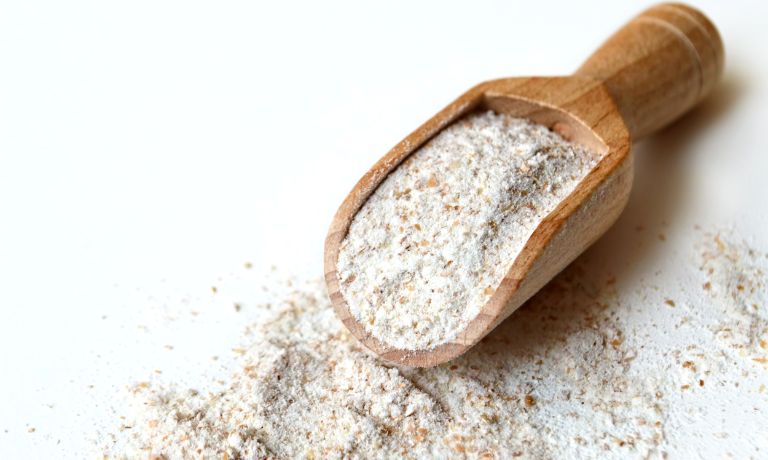
Substitutes For Rye Flour
Depending on the recipe, rye flour can be replaced with various other flours. Here are a few common substitutes:
Buckwheat Flour
Buckwheat flour, also known as kuttu ka atta, is made from the roasted ground seeds of buckwheat.
It has a strong nutty flavor and is high in protein, fiber, and minerals like magnesium.
[display-posts id=”2774″ image_size=”thumbnail” posts_per_page=”1″]
Buckwheat flour can replace rye flour in many recipes because it has similar nutritional and flavor properties.
Additionally, it is gluten-free, making it suitable for those who cannot tolerate wheat or other grains containing gluten.
Buckwheat flour is ideal for baking since it absorbs moisture well and helps create a light, fluffy texture.
It can also be used to give savory dishes an interesting nutty flavor.
When using buckwheat flour as a substitute for rye flour, it is best to mix it with other flour to achieve the desired consistency.
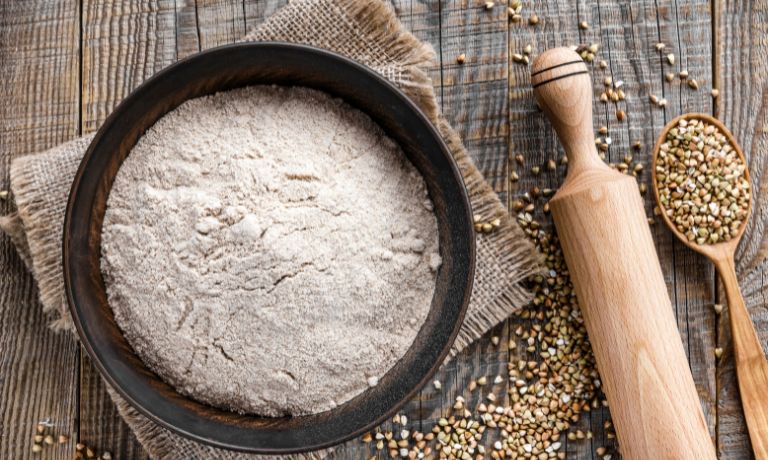
Rice Flour
Rice flour is a finely ground powder made from either white or brown rice.
It has a mild, slightly nutty flavor and is used in many baking recipes to replace wheat flour.
This flour can also be used to thicken soups and sauces and in breading for fried foods.
Its neutral taste makes it a great choice for those with food allergies or dietary restrictions.
Rice flour is one of the suitable substitutes for rye flour, as it provides a similar texture.
It can be used to create bread, pasta, pancakes, cookies and other baked products that generally use wheat flour.
Rice flour also offers the advantage of wrapping food around better than wheat flour, making it an excellent choice for fried foods.
Additionally, since rice flour has a mild flavor, spices and other seasonings can be added to dishes prepared with this type of flour for extra flavor.
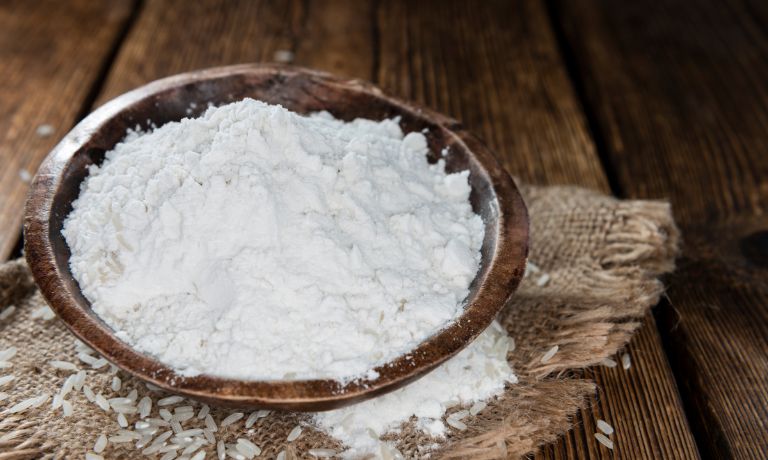
Kamut Flour
Kamut Flour is whole grain flour made from the ancient wheat grain known as Kamut.
It is an unrefined, nutrient-dense food that provides essential vitamins, minerals, and dietary fiber.
[display-posts id=”2739″ image_size=”thumbnail” posts_per_page=”1″]
Compared to rye flour, Kamut flour has a milder taste and slightly sweeter flavor profile.
Additionally, it is higher in protein and lower in gluten than rye flour, making it well-suited for baking.
Its slightly sweet flavor makes it suitable for recipes such as pancakes, bread, cookies, cakes, muffins and other baked products.
It can also be used to make pasta dishes or as a thickener for sauces and soups.
In addition to its great taste, Kamut flour is also a healthier alternative to white or whole wheat flour.
It is rich in essential nutrients such as magnesium, zinc and selenium.
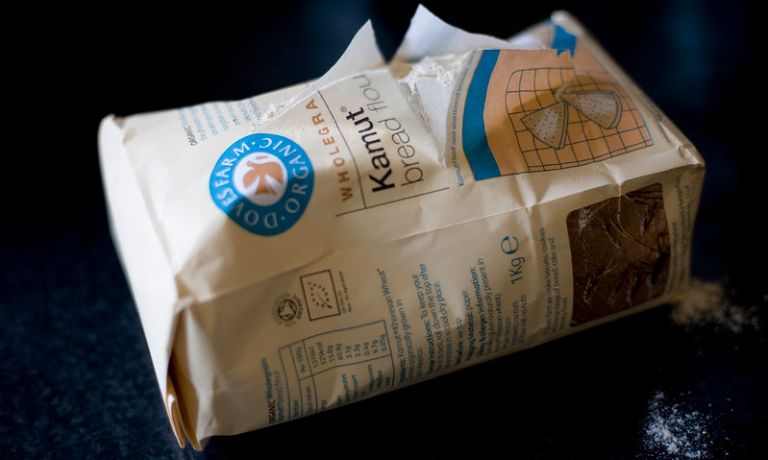
Corn Flour
Corn flour, maize flour, is a finely ground powder made from dried corn kernels.
It is a versatile ingredient that can be used for thickening sauces, binding doughs, and even baking cakes.
It has a mild flavor and light color, making it appealing in many recipes.
It can be used as a substitute for rye in baking and cooking, providing a similar texture and taste without wheat.
Its neutral flavor makes it an excellent choice for recipes that call for heavier flour, such as rye.
Plus, corn flour is high in fiber and contains many vitamins and minerals.
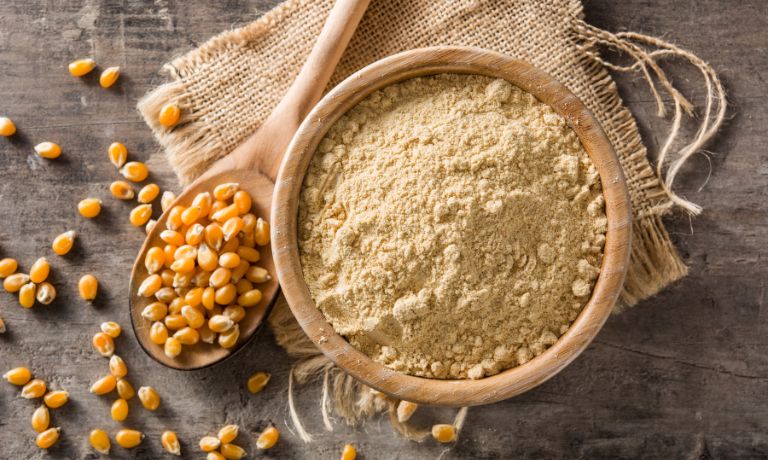
Amaranth Flour
Amaranth flour is derived from the amaranth grain, which is naturally gluten-free and high in protein.
It has a mild flavor with nutty undertones that pair well with other ingredients, such as vegetables or dairy products.
[display-posts id=”2950″ image_size=”thumbnail” posts_per_page=”1″]
It has a nutty flavor and is denser than rye flour, giving baked goods a chewier texture.
Amaranth flour is also high in fiber and other essential vitamins and minerals like calcium, iron, zinc, magnesium, and B vitamins.
Additionally, because of its high protein content, amaranth flour can substitute for rye flour when making vegan or vegetarian recipes.
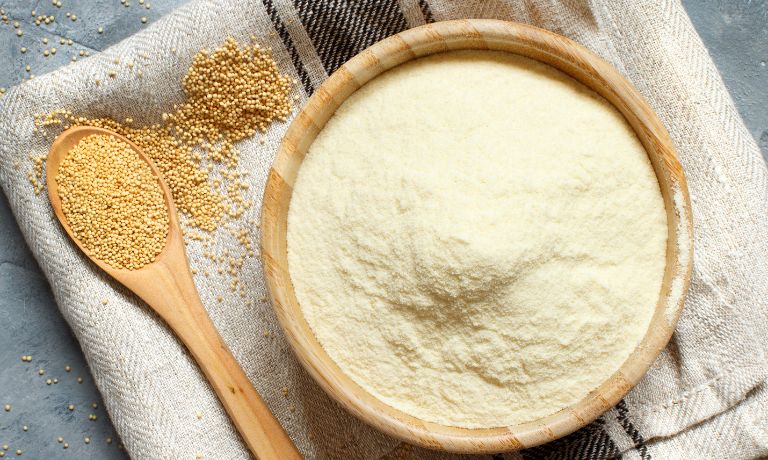
Wheat Flour
Wheat flour is made from wheat grains and is the most commonly used cereal grain in baking.
Wheat flour can be easily substituted for rye flour in many recipes due to its availability, affordability, and versatility.
It has a mild flavor and light texture that lends itself well to many dishes, from bread and cakes to cookies and pizza dough.
Its light color makes it perfect for creating a wide range of savory and sweet recipes.
Wheat flour is also high in fiber, protein, vitamins, and minerals, which can benefit overall health.
It can also provide added nutrition to the finished dishes when used as a substitute for rye flour.
When substituting wheat flour for rye flour, remember that the finished dish may require some adjustments to cooking times and liquid measurements.
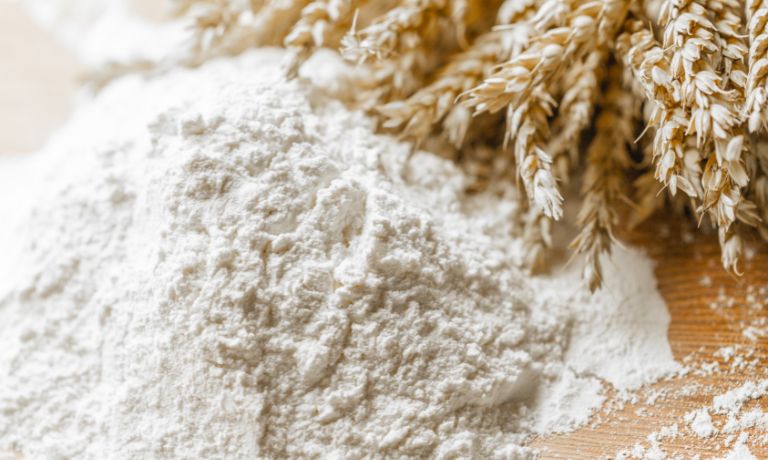
Oat Flour
Oat flour is made from oats and can be used as an alternative to rye flour in many recipes.
It has several advantages over rye, including being more readily available and easier to use.
[display-posts id=”3051″ image_size=”thumbnail” posts_per_page=”1″]
Oat flour is high in protein, fiber and minerals like zinc, magnesium and iron, making it a nutritious addition to any diet.
Oat flour is also gluten-free, which is perfect for those avoiding gluten.
Finally, oat flour has a mild flavor that can easily be incorporated into many recipes without drastically changing the overall taste.
As such, oat flour is one of the excellent substitutes for rye flour in baking and cooking.
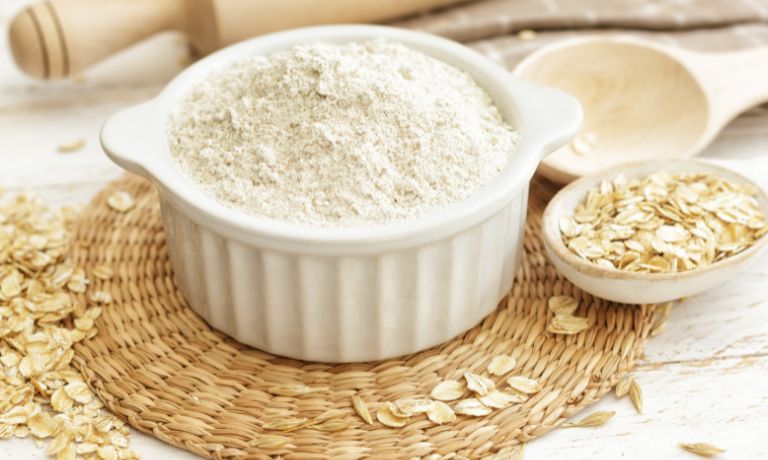
FAQs
Can You Substitute Bread Flour For Rye Flour?
No, bread flour and rye flour are not interchangeable.
Bread flour has a higher protein content, giving it greater strength and elasticity.
Rye flour has a distinctive flavor that cannot be achieved with bread flour.
What Other Grain Resembles Rye?
Barley is the grain that most closely resembles rye.
Like rye, barley has a strong flavor and chewy texture.
In addition, it contains several essential nutrients, including protein, carbohydrates, dietary fiber, iron, potassium and magnesium.
Does Rye Flour Resemble Oat Flour?
Rye flour and oat flour are similar in color and texture, but the flavor of rye flour is often more intense than oat flour’s.
Rye also has a slightly nuttier taste compared to oats.
Conclusion
Rye flour can be harder to find and more expensive than others, making it difficult to work with.
Fortunately, several alternative flours can serve as substitutes for rye flour in recipes.
Corn flour, amaranth flour, wheat flour and oat flour are great options for those looking for an alternative to rye flour.
Each flour has unique benefits and can be delicious when used correctly.
With some experimentation, finding the perfect substitute for any recipe that calls for rye flour is possible.

